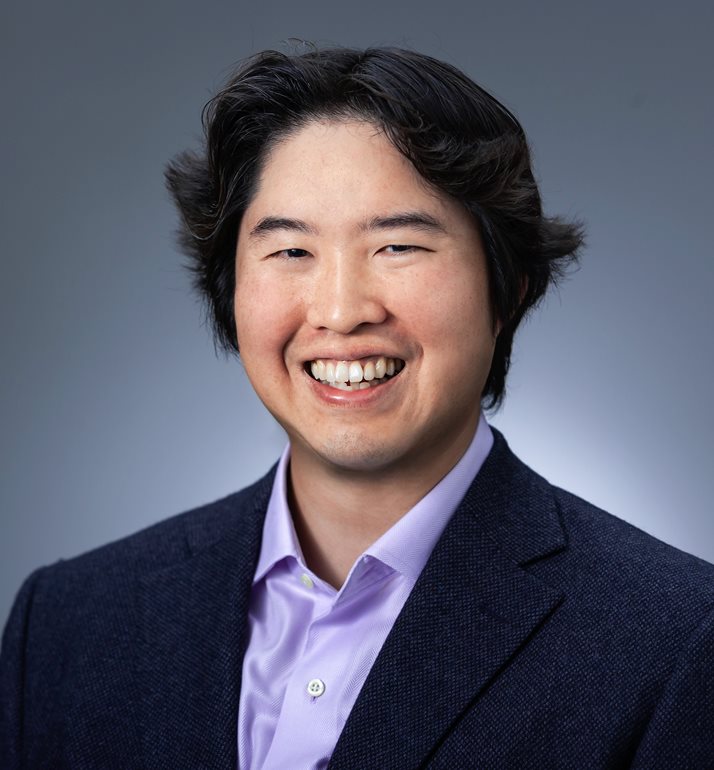
When people undergo a disaster or violence that affects their mental health, it’s common to wonder, “What’s wrong with them?”
Kosuke “Ko” Niitsu has an equally important question, “What helps them stay resilient?”
An assistant professor in the School of Nursing & Health Studies, Niitsu became interested in stress and trauma research as a Ph.D. student in Nebraska in 2011, when an earthquake and tsunami hit his native Japan.
Niitsu traveled there on his own, imagining he would find stress causing illnesses, such as PTSD. Instead, the people he met were thinking of recovery.
“Those people were cheerful and welcomed me with a big smile to their homes. That’s when I thought about what contributes to individual differences in resilience — personality traits, social support, even genetics,” Niitsu said.
Mindful resilience
At UW Bothell since autumn quarter 2019, Niitsu has incorporated his research into his teaching. His current project with colleagues is Resilience Through Virtual Mindfulness. With the pandemic an obvious source of stress at the beginning of autumn quarter, they emailed a flyer to students asking them to take part in an eight-week program in which they might learn resilience through mindfulness. Nearly 100 signed on.
In the first few weeks, some participants learned how the human body responds to stress and ways to cope other than alcohol or drugs. Next, Niitsu introduced mindfulness interventions, such as relaxing through deep breathing.
Another method: Pay attention to the surroundings while walking. In their comments about that, students wrote they noticed how blue the sky was and the leaves turning yellow, red.
“Through mindfulness,” Niitsu said, “they were able to notice how beautiful their surroundings are.”
Tools to use
For the research, the students are divided in three groups. One is receiving mindfulness coaching from Niitsu by teleconference. Another group is receiving the training through a computer app. The third group is receiving no mindfulness instruction.
All three groups took a survey before the start, assessing their stress on a scale. Niitsu expects to see lower numbers at the end from the intervention groups. In student comments, one already said she’s sleeping better.
The researchers plan to repeat the program in winter quarter to compile results from a total of 225 participants. The research is funded by a School of Nursing & Health Studies pilot grant, a UW Bothell Seed Grant and a UW Resilience Lab Seed Grant.
Niitsu is the principal investigator, along with co-principal investigator and Part-Time Lecturer Hoa Appel and Associate Professor Jody Early, all in the School of Nursing & Health Studies. Two other collaborators are Teaching Professor Bryan White in the School of STEM and Rosemary Simmons, the director of the UW Bothell Counseling Center.
As a psychiatric nurse, Niitsu said, he tries to bring some mental health awareness and mindfulness practices to all his courses, so students feel better. “That’s my hope.”
The international experience
Niitsu also led students in an exploration of mental resilience in a spring quarter course that was conducted in partnership with colleagues at the Tokyo Medical and Dental University. It was a Collaborative Online International Learning course, which is supported by the Office of Global Initiatives and its director, Natalia Dyba.
It helped that Niitsu’s counterpart in Tokyo, Professor Akiko Kondo, received her doctorate from the UW School of Nursing. They met last year when Kondo was leading a summer study abroad tour back to Seattle. In spring quarter, students at UW Bothell and the Tokyo university, using an online discussion board and teleconference, exchanged comments and questions about resilience to stress and trauma, such as loss and grief.
The COIL course developed cultural perspectives and insights, Niitsu said. Working nurses in both classes all had experienced shortages of personal protective equipment. They discovered homelessness was a problem both in Seattle and Tokyo. They also shared feelings of isolation. Religion is important for some people, and in Japan that typically means Buddhism or Shintoism.
Niitsu plans to repeat the COIL course in spring quarter with the Tokyo Medical and Dental University and, in the future, is interested in expanding the international collaboration with even more courses and partners.



